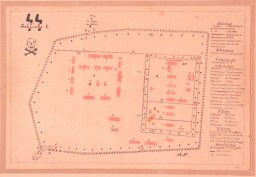

Accordingly, the current article relies on these principles to trace the process of meaning-making following historical trauma at the collective level and among both victim and perpetrator groups. It is a processes of identity construction that comprises the sense of self-esteem, continuity, distinctiveness, belonging, efficacy, and ultimately a sense of meaning ( Vignoles et al., 2006). The creation and maintenance of meaning comprises a sense of self-continuity, a connection between the self, others and the environment ( Baumeister and Vohs, 2002 Heine et al., 2006), and the feeling that one’s existence matters. In this paper I illustrate how the collective memory of traumatic events is a dynamic social psychological process that is primarily dedicated to the construction of meaning. These chosen traumas are conceptualized as narratives emphasizing that ‘walking through blood’ is necessary on the path to freedom, independence and group security ( Resende and Budryte, 2014). Such collective memory of a calamity suffered in the past by a group’s ancestors may give rise to a chosen trauma dynamic that weaves the connection between trauma, memory and ontological security ( Volkan, 1997). These subsequent generations of trauma survivors, that never witnessed the actual events, may remember the events differently than the direct survivors, and then the construction of these past events may take different shape and form from generation to generation. Collective memory of trauma is different from individual memory because collective memory persists beyond the lives of the direct survivors of the events, and is remembered by group members that may be far removed from the traumatic events in time and space. It suggests that the tragedy is represented in the collective memory of the group, and like all forms of memory it comprises not only a reproduction of the events, but also an ongoing reconstruction of the trauma in an attempt to make sense of it. The term collective trauma refers to the psychological reactions to a traumatic event that affect an entire society it does not merely reflect an historical fact, the recollection of a terrible event that happened to a group of people. For both victims and perpetrators, deriving meaning from trauma is an ongoing process that is continuously negotiated within groups and between groups it is responsible for debates over memory, but also holds the promise of providing a basis for intergroup understanding. The dissonance between historical crimes and the need to uphold a positive image of the group may be resolved, however, in another manner it may prompt the creation of a new group narrative that acknowledges the crime and uses it as a backdrop to accentuate the current positive actions of the group. The acknowledgment of responsibility often comes with disidentification from the group. For perpetrators, the memory of trauma poses a threat to collective identity that may be addressed by denying history, minimizing culpability for wrongdoing, transforming the memory of the event, closing the door on history, or accepting responsibility. For victims, the memory of trauma may be adaptive for group survival, but also elevates existential threat, which prompts a search for meaning, and the construction of a trans-generational collective self.

The current paper systematically delineates the process that begins with a collective trauma, transforms into a collective memory, and culminates in a system of meaning that allows groups to redefine who they are and where they are going. Aside from the horrific loss of life, collective trauma is also a crisis of meaning. Collective trauma is a cataclysmic event that shatters the basic fabric of society.


 0 kommentar(er)
0 kommentar(er)
